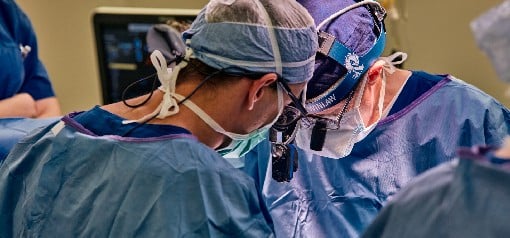
Transitioning from Pediatric to Adult Congenital Heart Disease Care
By Jenifer Horn APN, Adult Congenital Heart Disease Program at Lurie Children’s
Graduation not only reflects an academic milestone, but a symbolic transition from childhood to adulthood.
For those born with a congenital heart disease (CHD) and their loved ones, this milestone has great significance and may reflect a day they never imagined reaching. Fortunately, due to advances in CHD care, 90 percent of children will reach adulthood and have the opportunity to not only graduate from high school but also trade school, college etc.
But what happens when CHD patients graduate from pediatric cardiology? Are they done with cardiology forever? Are they cured? Does their scar become an interesting story and nothing more? The answer to all these questions is no.
Patients born with a CHD require lifelong, specialized cardiac care. What exactly does that mean? It means an adult congenital heart disease (ACHD) team consisting of cardiologists, advanced practice providers, nurses, surgeons etc. that are educated and focused on caring for adults with CHD.
Here at Lurie Children’s, our ACHD team is integrated directly into the Heart Center. Working closely with our pediatric colleagues, our goal is to make your transition from pediatric cardiology to ACHD seamless and smooth. However, this process is not one sided. Much like graduating from school, you will need to gain knowledge and education to meet your “Pediatric Cardiology Graduation Requirements.”
It is best to start learning this information (see below) during the early teen years so that you’re an expert by the time your transition occurs.
Your pediatric cardiology team and family can help you learn this information. Don’t be afraid to ask questions at every cardiology clinic visit. It is ok if you ask the same question multiple times, we know it is difficult information! You can also visit the following websites to learn more about CHD on your own:
"Pediatric Cardiology Graduation Requirements"
- I know the name of my CHD
- I know what cardiac surgeries and/or procedures I’ve had
- I know the names, doses and purpose of my medications
- I know how to make my own doctor appointments
- I know how to refill my medication prescriptions
- I take my medications without being reminded
- I know my medication allergies
- I know I need lifelong specialized cardiac care (ACHD)
- I know what to do and who to call if I have a medical emergency
- I know if I need to take antibiotics before a dentist appointment
- I carry emergency medical information with me or wear a medical alert bracelet
- I understand how tobacco, alcohol, recreational drug use, tattoos and unprotected sex can impact my CHD
Congratulations again on your graduation! We look forward to being your new cardiology team and helping you achieve your goals in life.
Adult Congenital Heart Disease Program
Lurie Children’s Heart Center offers the Adult Congenital Heart Disease (ACHD) Program to help give teenagers and adults who were born with heart defects the best cardiac care possible. Thanks to treatment advances, most children with congenital heart disease (CHD) now survive into adulthood, yet they also require life-long cardiac monitoring for potential complications. Only about 10% of adults with CHD receive recommended care within an ACHD center, so our ACHD program staff are committed to facilitating access to care for adults with congenital heart disease.
We have a partnership with the ACHD program at the Bluhm Cardiovascular Institute at Northwestern Memorial Hospital to make the care integration process seamless. We also collaborate with the pediatric teams at Lurie Children’s Heart Center, which include our program for irregular heart rhythms (arrhythmia) — one of the nation’s foremost arrhythmia services for CHD.
Our program’s cardiologists have specific training and experience in caring for adolescents and adults with CHD and are well prepared to provide life-long follow-up care for these patients. Major goals of our program are to educate the young adult on their heart problem and to identify and treat problems early before more serious consequences develop.
Sign up for our Newsletter
Get health tips from our pediatric experts, news about ground-breaking research, and feel-good moments delivered right to your inbox.
Additional Blog Posts

Why Lurie Children's is the Right Choice for Your Child's Heart Transplant
Choosing the right hospital for a child’s heart transplant is one of the most significant decisions a family can make. Our Heart Center team wants to help make this decision easier.
Read More

Pediatric Fractures: A Parental Guide
When a child breaks a bone, it may raise many concerns and questions for caregivers. Learn more in our guide on pediatric fractures for parents.
Read More

Concussion in Toddlers & Babies: Symptoms & Treatment
Toddlers and babies often hit their heads, so it's important to understand the signs of concussion, prevention and treatment.
Read More